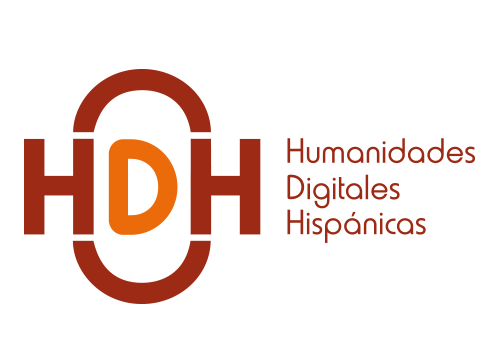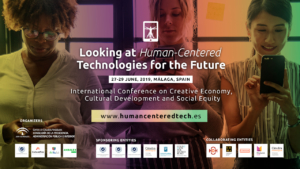Looking at Human-Centered Tecnhologies for the Future. International Conference on Creative Economy, Cultural Development and Social Equity
Colección del Museo Ruso de San Petersburgo
Organiza Universidad de Málaga, Universidad de Western Ontario (Canadá), Centro de Estudios Andaluces de la Junta de Andalucía.
The current public policies of economic and social development point to the important role that artistic creation, creative industries and cultural institutions play in the new productive models due to their capacity of catalyzing wealth, quality of life and social prosperity. The Creative Economy Report2013 by UNESCO and the UNDP (United Nations Development Program) emphasized this idea meanwhile calling for the implementation of initiatives that stimulated innovation in this field, in the search for sustainable, equitable and inclusive growth and development.
The creative economy “includes the sectors in which the value of their goods and services is based on intellectual property: architecture, visual and performing arts, crafts, cinema, design, publishing, research and development, games and toys, fashion, music , advertising, software, TV and radio, and video games» (Orange Book of the Creative Economy, BID). In 2005, this economic sector reached 6.1{6492360ee5b0fb3b1074343ac227414b1d4a968c43703d1c9a8a61a137798d5d} of the global economy and reached 4.3 billion dollars in 2011. According to the aforementioned IDB report, exports of creative goods and services in 2011 reached $ 646 billion dollars.
In The Rise of the Creative Class(2002), Richard Florida (Director of the Martin Prosperity Institute of the Rotman School of Business at the University of Toronto) also highlighted the importance of diversity and creativity in the rise of innovation and regional and national growth. Florida postulates that creative capital, that is, the human capital contributed by the creative class, is a key factor for the economic growth and social welfare of cities. This creative class includes: scientists and engineers, teachers, poets and novelists, actors, designers and architects, as well as cultural agents, artists, think-tank analysts and opinion makers.
To this approach brought about by the creative economy, it must be added the possibilities that current technological developments, such as those associated to Data Science and Artificial Intelligence, offer to extract strategic knowledge (descriptive and prospective) about the reality (social, economic, cultural) that is being analyzed. For example, the production and design of multivariable and multiscale indicators facilitated by these technologies are of great utility in the planning and evaluation of cultural and social policies. Likewise, knowledge generation from citizens is becoming both more feasible as well as important. Data provided directly by individuals can be critical as it can add information beyond what is available otherwise.
However, the conditions of an ever-increasing technological society, the growing overflow of data, its expanding role as social, economic and political tools, as well as certain non-transparent and suspicious practices related to data extractivism and reusability logics bring to light challenging uncertainties that involve global ethical and right issues that cannot be displaced from the conversation.
Certainly, if our final purpose is to build a new world more balanced, equitable and respectful with the people and the environment they inhabit for a future that we venture more and more hyper-technological, a human-being centered technology approach is needed to promote initiatives that explore solutions for the most society’s pressing challenges without losing sight of individual and collective rights to privacy, diversity, inclusiveness and freedom.
According to this complex scenario, the objectives of this international conference are, in the first place, to analyze how current technological innovations and the frameworks of thought that they generate are capable of promoting processes of cultural development, economic growth, social inclusion and equity. Secondly, to examine the challenges that must be faced at a global level in an increasingly datacentric, hyperconnected and technological society, especially those that involve issues related to human rights and legal responsibilities, democratic representation and governance systems. Thirdly, this conference also aims to discuss the ways in which research activities, private initiatives, public policies, economic investments, etc. should be channeled in the coming years to achieve a better future for all.
Within the framework of this conference, the results of the project Data methodologies applied to the analysis of artistic exhibitions for the development of the creative economy (Andalex Project) will be presented and discussed. Andalex Project focuses the attention on the cultural subsector of art exhibitions under the premise that exhibitions represent a key component of the creative economy since they constitute a first-order element in the generation of socio-cultural and economic dynamics in the territories; and in the valuation of creativity as an expression of territorial and cultural diversity.
This conference aims to bring together researchers, experts, practitioners, technologists, activists, students, executives, entrepreneurs, policymakers, and all of them interested in this fascinating area of research, criticism and action.




